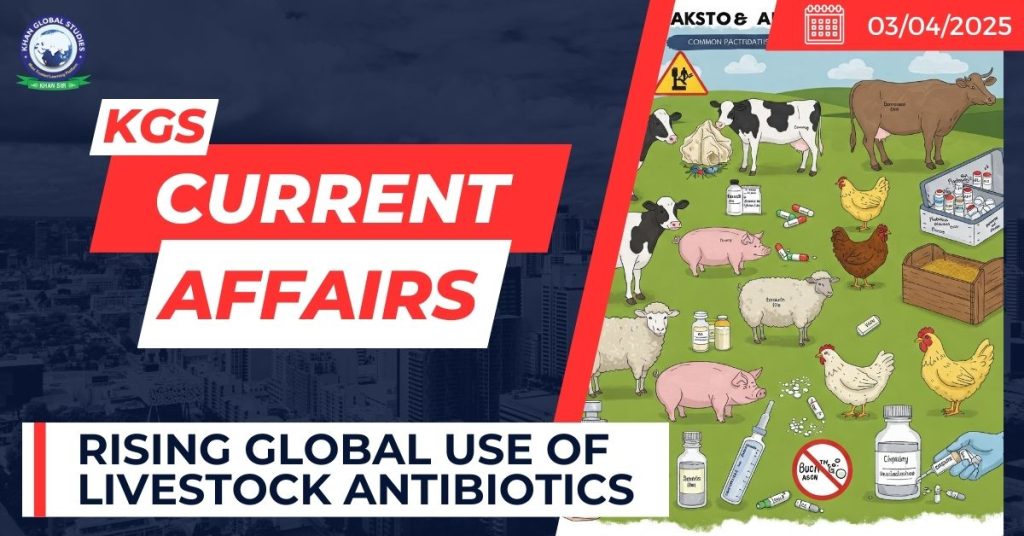Context:
Recently, a new study by the Food and Agriculture Organization (FAO) revealed that Global Livestock Antibiotic use could rise by 30 per cent by 2040 compared to 2019.

More on the News
- Under a business-as-usual scenario, global antibiotic use in livestock could rise 29.5% from the 2019 baseline by 2040.
- The study was published in “Nature Communications”, reveals that enhancing livestock systems could cut this projected increase by half.
- The study was conducted by FAO experts in collaboration with scholars from the University of Zürich.
Key Findings of the study
As per the study, the Global antibiotic use quantity (AMUQ) in livestock reached approximately 110,777 tons in 2019, which can rise to 143,481 tons by 2040.
However, under alternative scenarios this antibiotic use can be reduced by up to 57% (to 62,000 tons) by 2040 if livestock productivity is optimised by improving animal health, management practices and production efficiency.
Moderate reductions in Antibiotic use intensity (AMUI) can offset AMUQ increases, especially when combined with lower livestock biomass.
Enhancing livestock production efficiency is key to curbing antibiotic use.
The need for antibiotics on farmed animals can be reduced by producing more animal-sourced food with the same or fewer animals.
According to FAO’s projections, Asia and the Pacific region are expected to remain the largest contributors of global livestock antibiotic use, accounting for 64.6% of the total. Other major contributors include:
- South America – 19%
- Africa – 5.7%
- North America – 5.5%
- Europe – 5.2%
The study also introduction of the Livestock Biomass Conversion (LBC) method, which offers a more precise way to estimate antibiotic use across various livestock species and production systems.
Recent global intiative to reduce the need for Antimicrobials on Farms
Under the 2024 UN General Assembly Antimicrobial Resistance (AMR) Declaration Governments worldwide have committed to a significant reduction in the global quantity of antimicrobials used in the agrifood system by 2030.
FAO recently launched a 10-year global initiative ‘Reduce the Need for Antimicrobials on Farms for Sustainable Agrifood Systems Transformation’ (RENOFARM).
- It aims to provides policy guidance, technical assistance, and capacity-building to help countries curtail antibiotic use
- Focus on promoting sustainable livestock transformation.

